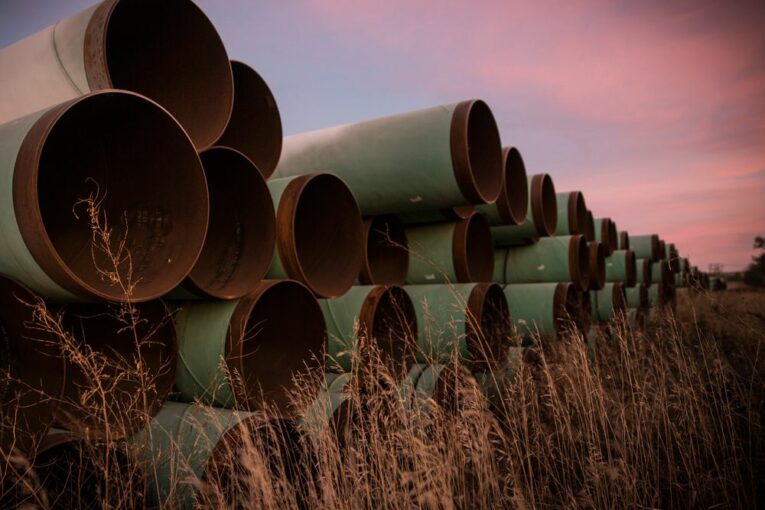
A report Tuesday that the Biden administration is in the early stages of looking for ways to increase oil imports from Canada was good news for Canadian oil and gas producers gathered virtually to discuss investment in the sector.
Producers welcomed the Wall Street Journal report that U.S. officials are discussing how to enable a hike in imports, but at the same time were discouraged by the fact the White House appears to have no intention of reviving the Keystone XL pipeline project cancelled by U.S. President Joe Biden on his first day in office.
“It’s disappointing the messages we’ve heard about Keystone. At a time where there’s an active war in Europe, we need to get beyond the politics,” Tim McMillan, president of the Canadian Association of Petroleum Producers (CAPP), said at the first day of the two-day Scotiabank CAPP Energy Symposium.
“Keystone XL was a high quality project that has gone through an incredibly rigorous review and I’d love to see it resurrected. That being said, on the natural gas side, on other pipelines – I think we continue to push to have more access to one of the largest customers in the world.”
Producers welcomed the acknowledgement of Canada’s importance to U.S. energy security — particularly following weeks of reports of American officials courting Venezuela and Saudi Arabia for assistance in easing supply concerns. The Journal report suggested import options could include shipping more oil by rail or expanding pipeline capacity along existing routes.
Much of Tuesday’s gathering was taken up with CEOs and analysts discussing how Canadian companies are allocating the industry’s record cash flows. The consistent message delivered by proponents of Canada’s energy sector was of the need for a renewed focus on energy security and affordability across North America and among liberal democracies.
Canadian firms attracted around 10 per cent of global investment in oil and gas in 2014, but that figure is closer to six per cent today, MacMillan said. The CAPP president said the energy crisis in Europe enabled Russian aggression in the Ukraine and underinvestment in oil and gas over the past decade has contributed to rising cost of living problems in countries like Canada.
“Over the last decade (we) have seen lower investment in democracies like Canada and greater investments in Russia, the Middle East and other dictatorships,” he said.
“I think we have a wake-up call. And I would like to see Canada’s ambition be one where we’re going to play a larger role in global supply.”
With global oil inventories at or near five-year lows, the federal government said last month that Canadian firms could increase oil and gas exports by the equivalent of 300,000 barrels per day to assist allies trying to shift away from Russian supplies.
For their part, Canadian energy companies hope to see continued political support for increased production and export capacity in exchange for cooperation from the sector in achieving Canada’s climate objectives.
Crescent Point Energy Corp. CEO Craig Bryksa said Thursday that Canadian oil firms are leading in environmental and social standards and in technologies like carbon capture and sequestration and are willing to work with governments. CAPP, Canada’s largest oil and gas industry group, met recently with Natural Resource Minister Jonathan Wilkinson to discuss Ottawa’s emissions reduction plan, Bryksa said.
“I’m excited ideally (to ensure) every incremental barrel that makes its way onto the market has a Canadian flag stamped on it,” Bryksa said.
[email protected] Twitter: @mpotkins
You can read more of the news on source
